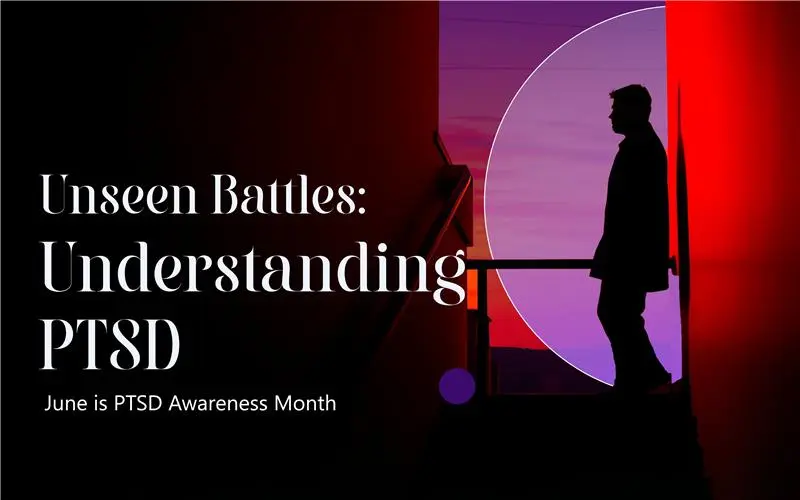by Dr. Ritu Goel, MD | June 24, 2025 | Blogs | 0 comments

June marks National PTSD Awareness Month—a crucial reminder of the invisible struggles faced by millions worldwide. Post-Traumatic Stress Disorder (PTSD) is real, complex, and deeply impactful, affecting every aspect of an individual's life. Understanding its dynamics is the first step toward healing and support.
PTSD is a mental health condition caused by experiencing or witnessing traumatic events. According to the American Psychiatric Association (APA), symptoms may include intense flashbacks, nightmares, severe anxiety, and uncontrollable thoughts about the event. PTSD doesn't fit a simple mold; it can manifest differently for everyone, often chronically, with symptoms that fluctuate significantly over time.
Identifying PTSD isn't always straightforward. Symptoms can be explicit or subtle:
Less visible struggles may include profound guilt, feelings of shame, trust issues, and disruptions in personal and professional relationships.
PTSD can affect anyone who has experienced trauma, including veterans, first responders, survivors of abuse, athletes, and individuals who have endured severe accidents or chronic stress. Consider a first responder who appears outwardly resilient yet privately struggles with sleepless nights, anxiety, and isolation—this is a common, often overlooked aspect of PTSD.
PTSD symptoms fluctuate over time, influenced by factors such as stress, traumatic anniversaries, and environmental triggers. Complex PTSD, stemming from prolonged or repeated trauma, can complicate symptom management further, underscoring the need for ongoing care and awareness.
Effective PTSD treatment goes beyond medication and incorporates a holistic, integrative approach:
Research from the National Institute of Mental Health (NIMH) underscores the effectiveness of combining therapeutic methods, mindfulness, and medication, paving a meaningful pathway to healing.
Support from loved ones is critical for recovery. Here’s how you can make a meaningful difference:
Consider the story of Alex, whose subtle changes were noticed by a friend who encouraged him to seek therapy. This simple act of support became a turning point, highlighting the profound impact of understanding and compassion.
PTSD doesn't have to define a person’s life. Recognizing its signs, understanding its dynamic nature, and accessing holistic, integrative treatment can lead to profound healing. Remember that compassionate support and professional help can transform lives.
If you or a loved one needs help, reach out to a mental health professional today. Your journey matters, and healing is possible.
You're not alone, and your journey matters.
Learn more about PTSD from the APAVisit: www.mindclaire.com
This blog is intended for informational purposes only and should not be considered as any professional advice. Please consult with the respective professional for any specific advice related to your situation.
Location: United States of America
Media Contact: Harsh Golani